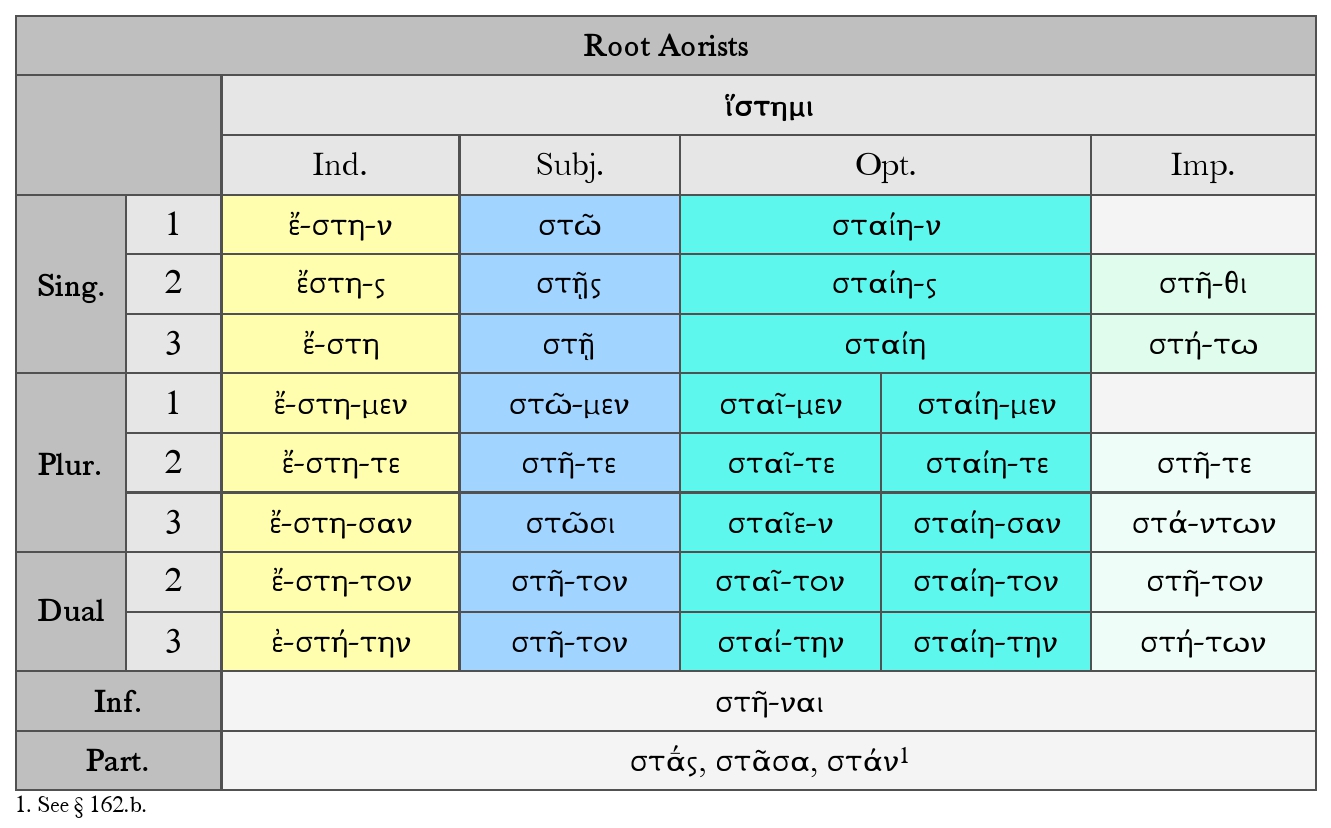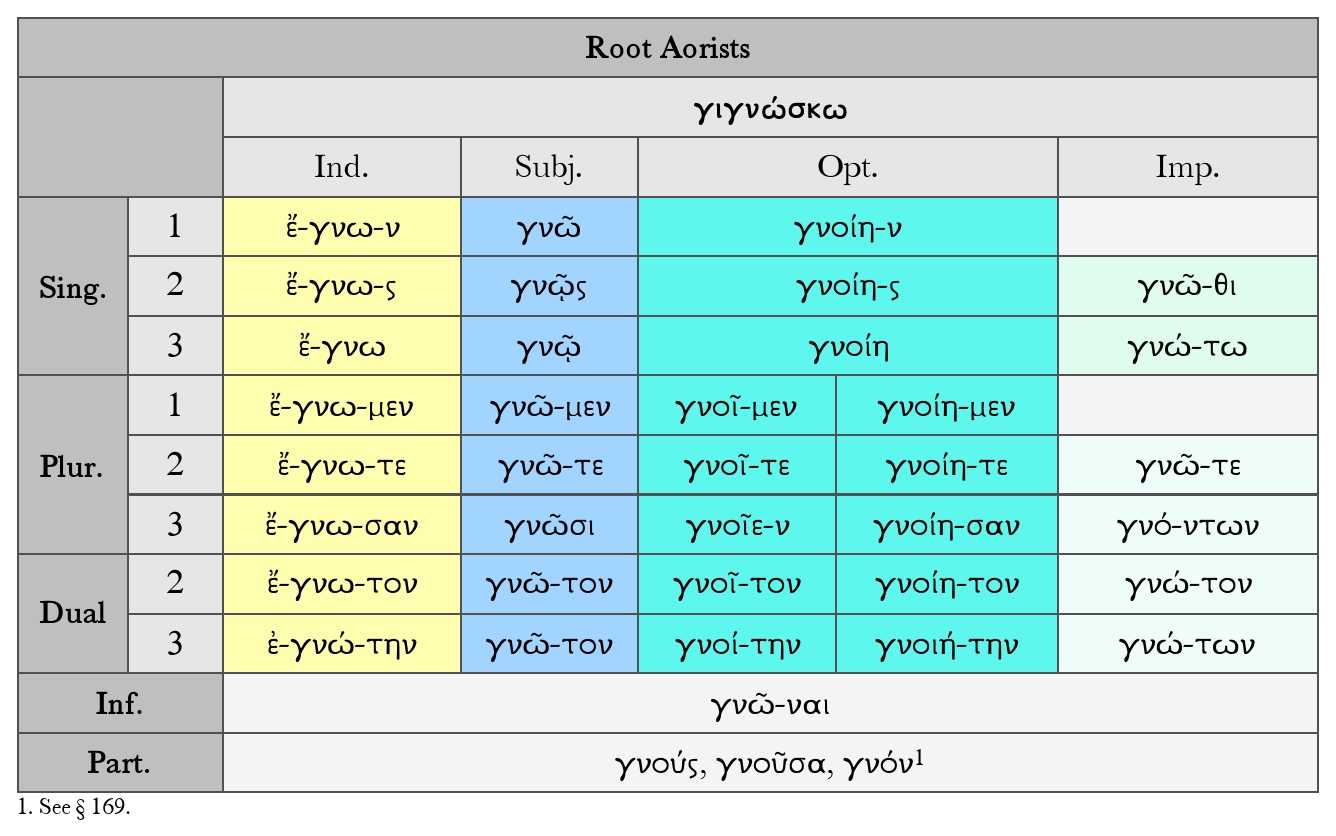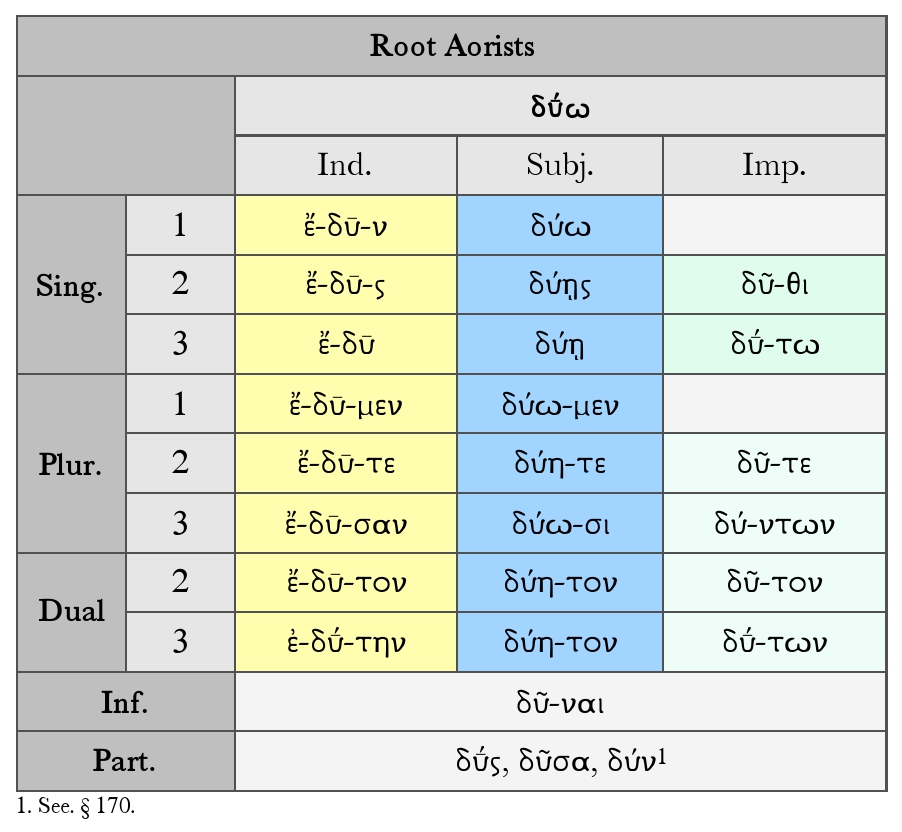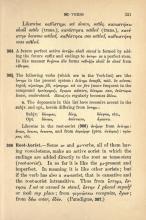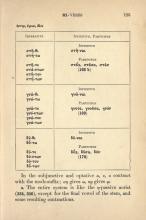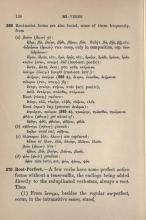366. Some ω- and μι- verbs, all of them having vowel stems, make an active aorist in which the endings are added directly to the root as tense stem (root-aorist). In so far it is like the μι- present and imperfect. In meaning it is like other aorists; but if the verb has also a σα- aorist, that is causative and the root-aorist intransitive. (Paradigms, § 367, below)
ἵστημι, ἔστησα (I set or caused to stand) : ἔστην (I placed myself or took my place)
γιγνώσκω (recognize) : ἔγνων
δῡ́ω (enter) : ἔδῡν
368. The root vowel is long (-η-, -ω-, -ῡ-) before a single consonant, short (-α-, -ε-, -ο-, -υ-) before a vowel or two consonants. The endings are added without change. In the subjunctive and optative -α-, -ε-, -ο- contract with the mode suffix; -οη gives -ω, -oῃ gives -ῳ.
369. Root-aorist forms are also found, some of them frequently, from
(a) βαίνω (βα:η-, go):
ἔβην, βῶ, βαίην, βῆθι, βῆναι, βᾱ́ς
Subjv. βώ, βῇς, βῇ, etc.
-διδρᾱ́σκω (δρα:ᾱ-, run away; only in composition, esp. ἀπο-διδρᾱ́σκω):
ἔδρᾱν, ἔδρᾱς, etc.
δρῶ, δρᾷς, etc.
δραίην, δρᾶθι, δρᾶναι, δρᾱ́ς
κτείνω (κτεν-, κτα:η-, kill; root-aor. poetic):
ἔκτᾱν, ἔκτᾱς, ἔκτᾱ; part. κτᾱ́ς, κτάμενος
ὀνίνημι (ὀνα:η-, benefit; root-aor. intr.):
ὥνήμην, ὀναίμην (§ 365.a), ὄνησο, ὄνασθαι, ὀνήμενος.
πέτομαι (πετ-, πτα:η-, fly):
ἔπτην, πταίην, πτῆναι, πτᾱ́ς (act. poetic),
mid. ἐπτάμην, πτάσθαι, πτάμενος
Root (τλα:η-, endure):
ἔτλην, τλῶ, τλαίην, τλῆθι, τλῆναι, τλᾱ́ς
Root (πρια-, buy; pres. ὠνέομαι):
ἐπριάμην, πρίωμαι (§ 365.a), πριαίμην, πρίασθαι, πριάμενος
φθάνω (φθα:η-, get ahead of):
ἔφθην, φθῶ, φθαίην, φθῆναι, φθᾱ́ς
(b) σβέννῡμι (σβε:η-, quench):
ἔσβην (went out), σβῆναι
(c) ἁλίσκομαι (ἁλ-, ἁλο:ω-, am captured):
ἑᾱ́λων or ἥλων, ἁλῶ, ἁλοίην, ἁλῶναι, ἁλούς
βιόω (βιο:ω-, live):
ἐβίων, βιῶ, βιοίην, βιῶναι, βιούς
(d) φῡ́ω (φυ:ῡ-, produce):
ἔφῡν (was born, am) φύω, φῦναι, φῡ́ς

